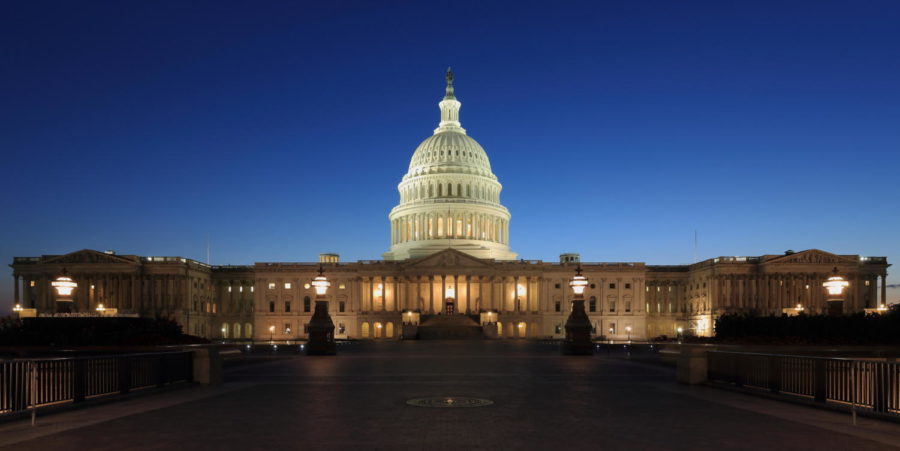Wright: The constitutional debate in Trump’s immigration ban
February 12, 2017
The most contentious of presidential executive orders this year has seemingly just come to a close. The nation’s fixation with the piece of legislation relating to Trump’s travel ban has been heated and multifaceted. The ethics of how we should treat our nation’s immigrants has been central to the public debate, but not the primary debate that faces the judges and lawyers entrusted with determining the conclusion to all this.
While the merits of a debate based in how we ought to treat others is real, the constitutional debate of how we may treat others is the one that determines the outcome. The motives behind it are both selfish and altruistic. On one hand, the 9th Circuit judges repeatedly prodded as to how the citizens of Washington and Minnesota were affected by the practical loss of immigrants from the seven blacklisted countries. The judges asked for proof, not of how much harm had been done to the immigrants and legal aliens, but how the barring of immigrants had practical harm to citizens.
On the other hand, in the argument in defense of the ban, the case was made whether a) the bill targeted Muslims, or b) if any new information had been released to warrant new action.
Now, in response to the current ruling to not reinstate the order, the administration has expressed disdain for the ruling both in its supposed disregard for safety and its lack of response to certain clauses that it believes ought to allow the president to bar aliens from entering the country under certain circumstances.
Although President Donald Trump declared the ruling unethical and questioned the motives of the judges in the 9th Circuit, statements released by the administration imply that it plans to either rewrite the order or appeal it on the grounds that a practical error was made, and therefore the ruling wouldn’t apply to an altered version.
The two aspects of the debate haven’t been perfectly articulated, but what should be drawn from this is how each form of this debate has a role in society and law. Discussion over the morality and ramifications of the order — or a law that could replace it — isn’t one that can make it more or less difficult for the administration to act on its wishes.
The next step that’s been taken by the Trump administration is the claim that under the statute 8 U.S.C. §1182(f), the president may exclude certain individuals as long as the attorney general and secretary of state agree that an alien has association with a terrorist organization and has intent of committing terrorist acts on U.S. soil.
The natural response to this argument is to say that, for one, no reason was made to claim that living in the same country is sufficient for being associated with a terrorist. Furthermore, no evidence has been provided to show that citizens of these countries, by living there, are at high risk for intending to commit acts of terrorism.
This sort of a debate skirts around the “why” of some pretty striking issues. It’s extremely important, possibly more important, to show and understand compassion for the kinds of people suffering from these issues. But the social debate of whether the immigration ban is moral won’t make it go away.







